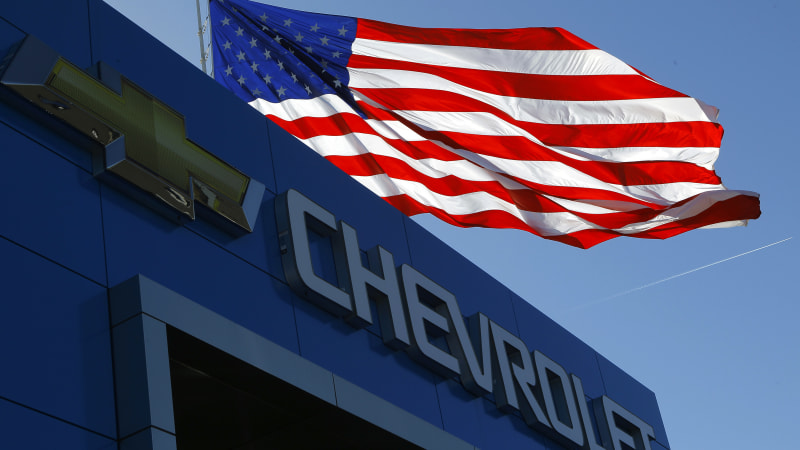The top two U.S. automakers are preparing for a possible economic downturn, the companies said on Tuesday, as an ongoing trade war between Washington and Beijing fuels fears of a global recession.
Tit-for-tat tariffs have increased raw material costs for the global auto industry, which is already dealing with weak demand in both China and the United States.
Ford Motor Co has a cash buffer of $20 billion for a potential downturn event, Ford North American Chief Financial Officer Matt Fields said at a J.P. Morgan Conference in New York.
General Motors has $18 billion in cash, with the potential to pay two years worth of dividends, the company’s finance head, Dhivya Suryadevara, said at the conference.
On the same day, responding to pressure from businesses and growing fears that a trade war is threatening the U.S. economy, the Trump administration said it was delaying most of the import taxes it planned to impose on Chinese goods and is dropping some others.
The announcement Tuesday from the Office of the U.S. Trade Representative was greeted with relief on Wall Street and by retailers who have grown fearful that the new tariffs would wreck holiday sales.
The administration says it still plans to proceed with 10% tariffs on about $300 billion in Chinese imports — extending its import taxes to just about everything China ships to the United States in a dispute over Beijing’s strong-arm trade policies.
But under pressure from retailers and other businesses, President Donald Trump’s trade office said it would delay until Dec. 15 the tariffs on nearly 60% of the imports that had been set to absorb the new taxes starting Sept. 1. Among the products that will benefit from the 3½-month reprieve are such popular consumer goods as cellphones, laptops, video game consoles, some toys, computer monitors, shoes and clothing.
The administration is also removing other items from the tariff list entirely, based on what it called “health, safety, national security and other factors.”
Separately, China’s Ministry of Commerce reported that top Chinese negotiators had spoken by phone with their U.S. counterparts, Trade Representative Robert Lighthizer and Treasury Secretary Steven Mnuchin, and planned to talk again in two weeks.
The news sent the Dow Jones Industrial Average soaring more than 400 points in mid-afternoon trading. Shares of Apple, Mattel and shoe brand Steve Madden, which stand to benefit from the delayed tariffs, led the rally.
GM has modeled both moderate and severe downturn scenarios similar to 2008-2009 to get a sense of how it might affect profitability and cash flow at the No.1 U.S. car manufacturer, its CFO Suryadevara said.
“It’s something that we continually keep watching and updating to make sure that we’re all set for when the downturn does come,” Suryadevara said, adding that company does not see an imminent downturn.
Deferring non-essential capital expenditure and considering a shift to lower-priced vehicles are among the few things GM will look at as part of its “downturn planning” to save costs.
Ford said it was “proactively” evaluating its future moves, as it works with economists to model the severity of a possible recession.
Fear of a recession has dominated trading on Wall Street this year and spurred a bout of extreme volatility following President Donald Trump’s announcement of a new round of tariffs on Aug. 1.
Information from the Associated Press was used in this report.





